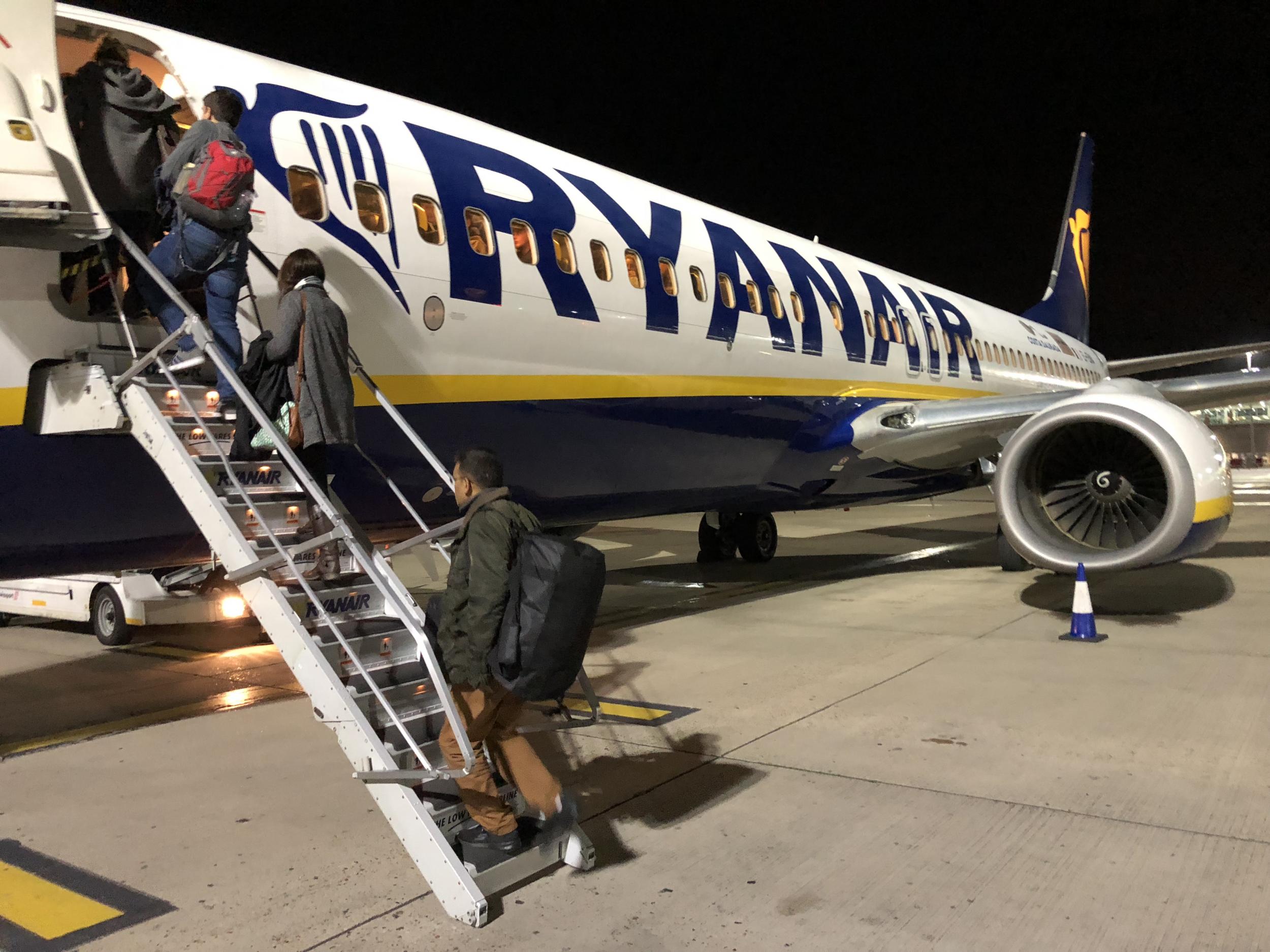Ryanair profits warning wipes 10 per cent off airline value
Airline claims stoppages 'are being incited by competitor employees’

Your support helps us to tell the story
From reproductive rights to climate change to Big Tech, The Independent is on the ground when the story is developing. Whether it's investigating the financials of Elon Musk's pro-Trump PAC or producing our latest documentary, 'The A Word', which shines a light on the American women fighting for reproductive rights, we know how important it is to parse out the facts from the messaging.
At such a critical moment in US history, we need reporters on the ground. Your donation allows us to keep sending journalists to speak to both sides of the story.
The Independent is trusted by Americans across the entire political spectrum. And unlike many other quality news outlets, we choose not to lock Americans out of our reporting and analysis with paywalls. We believe quality journalism should be available to everyone, paid for by those who can afford it.
Your support makes all the difference.Europe’s biggest budget airline has cut its profits forecast by €150m (£133m), blaming the effect of strikes and the rising cost of oil.
Ryanair lowered its full year profit guidance from around €1.3bn to €1.15bn – just over £1bn. Its shares immediately fell by 10 per cent.
The airline blames strikes by pilots and cabin crew for a large part of the one-eighth decline in predicted earnings.
Ryanair recognised trades unions only in December 2017, and since then has suffered a series of coordinated stoppages by pilots and cabin crew – most recently last Friday, when at least 250 flights were cancelled, affecting around 40,000 passengers.
The airline says the strikes triggered “lower traffic and weaker close-in fares in September”.
Average fares between October and March are now predicted to fall by 2 per cent, rather than remaining flat.
Demand has also been dented by fear of further industrial action. Ryanair claims the strikes “are being incited by competitor employees”.
Michael O’Leary, chief executive of Ryanair, said: “Customer confidence, forward bookings and Q3 fares [between October and December] have been affected, most notably over the October school mid-terms and Christmas, in those five countries where unnecessary strikes have been repeated.”
Customers whose flights are cancelled also trigger significant costs to the airline. Passengers’ rights rules require Ryanair to provide hotel beds and meals for stranded travellers. Seats on replacement flights also represent significant costs.
The airline is also being hit by the highest oil prices for four years; 10 per cent of its fuel requirements are unhedged, exposing it to higher costs. Its recently acquired Austrian subsidiary, Laudamotion, has no hedging in place.
Ryanair bases at Eindhoven in the Netherlands and Bremen in Germany are to be closed for the winter, while two of the five aircraft at Niederrhein in western Germany will be removed.
The airline said: “All affected customers have been contacted by email/SMS this morning and will be re-accommodated on other flights or refunded as they so wish.
“We will also now consult with our pilots and cabin crew at these three bases to minimise job losses.
“We expect to offer our pilots vacancies at other Ryanair bases but, as we have a large surplus of winter cabin crew, we will explore unpaid leave and other options to minimise cabin crew job losses.”
The airline has lopped one million passengers off the predicted total for the current financial year; the total is now expected to be 138 million.
Ryanair remains by far the most profitable airline in Europe, as well as the safest in the world when measured by passengers carried without a fatal accident.
Join our commenting forum
Join thought-provoking conversations, follow other Independent readers and see their replies
Comments